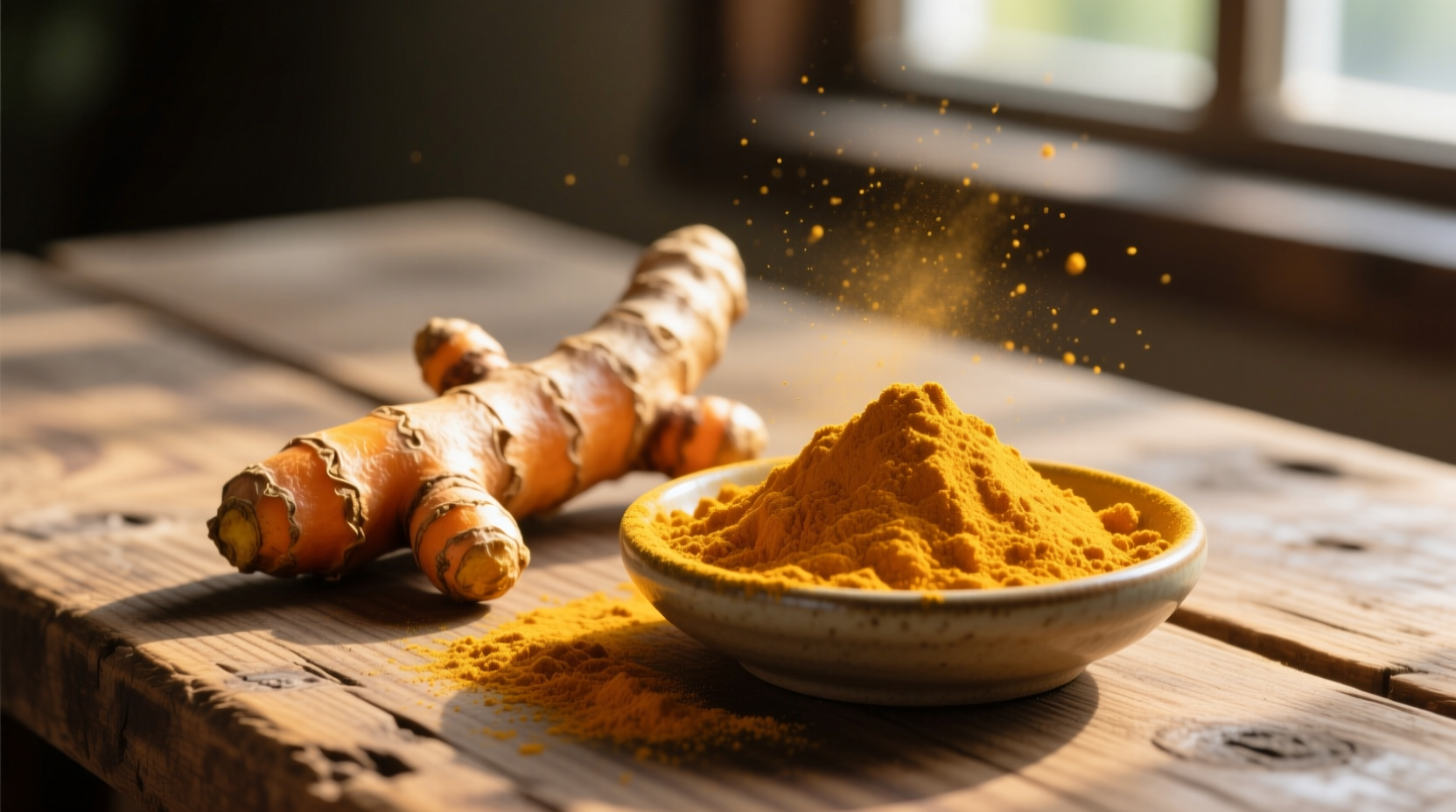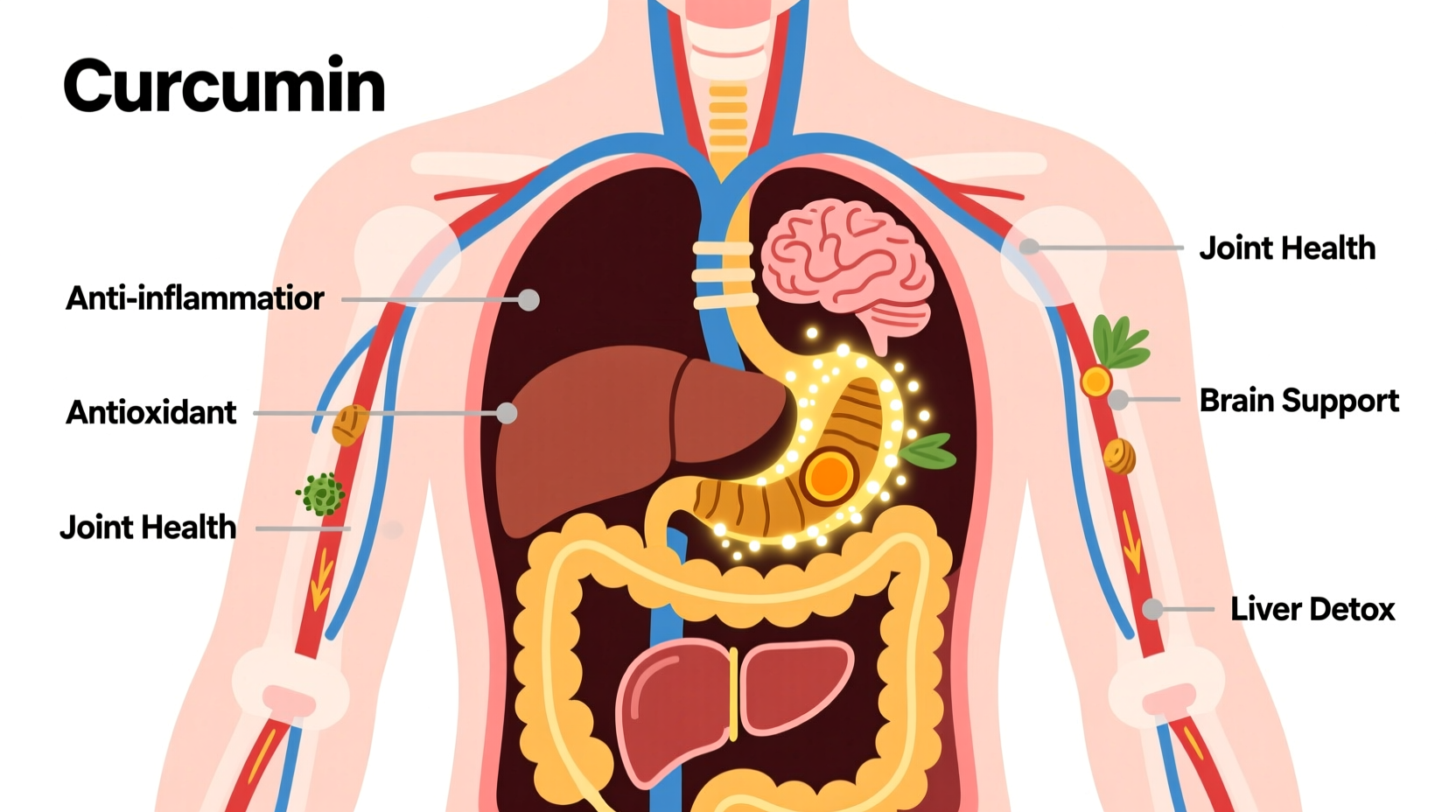For centuries, traditional medicine systems across Asia have valued turmeric as a healing powerhouse. Modern science now confirms what ancient practitioners knew - this golden spice offers remarkable benefits for multiple body systems when used correctly. Understanding what is turmeric good for in the body requires examining both traditional wisdom and contemporary research.
How Turmeric Works in Your Body
When you consume turmeric, its active compound curcumin interacts with your body's cellular pathways. Unlike many supplements, curcumin doesn't target just one system - it works through multiple mechanisms simultaneously. However, its effectiveness depends significantly on how you consume it. Pure curcumin has notoriously low bioavailability, meaning your body struggles to absorb it efficiently without proper preparation.
Key Body Systems Supported by Turmeric
Inflammation Regulation and Joint Health
Chronic inflammation underlies many modern health challenges. Research shows curcumin effectively modulates inflammatory pathways, comparable to some anti-inflammatory medications but without the side effects. A comprehensive review published in the Journal of Medicinal Food analyzed 29 studies and concluded that curcumin supplementation significantly reduced inflammatory markers in clinical populations.
| Inflammatory Marker | Reduction with Curcumin | Study Duration |
|---|---|---|
| C-reactive protein (CRP) | 18-27% | 8-12 weeks |
| TNF-alpha | 20-35% | 6-12 weeks |
| IL-6 | 15-25% | 8 weeks |
This anti-inflammatory effect translates to tangible benefits for joint health. Clinical trials demonstrate that people with osteoarthritis who took standardized curcumin extracts reported significantly less pain and improved mobility compared to placebo groups.
Brain Function and Cognitive Support
Curcumin crosses the blood-brain barrier, allowing it to directly influence brain health. It boosts levels of brain-derived neurotrophic factor (BDNF), a growth hormone that functions in your brain. Declining BDNF levels are associated with cognitive decline and depression. A double-blind, placebo-controlled study in the American Journal of Geriatric Psychiatry found that older adults taking curcumin supplements showed improved memory and attention over an 18-month period.
Cardiovascular Protection Mechanisms
Turmeric supports heart health through multiple pathways. It improves endothelial function (the lining of your blood vessels), reduces oxidation of LDL cholesterol, and decreases inflammation in cardiovascular tissues. Research published by the American Heart Association demonstrated that curcumin supplementation improved vascular function in postmenopausal women to a degree comparable to regular exercise.
Digestive System Benefits
Traditional Ayurvedic medicine has long used turmeric to support digestion. Modern research confirms that curcumin stimulates bile production, which helps break down fats and improves overall digestion. A clinical trial in the European Review for Medical and Pharmacological Sciences found that turmeric supplementation reduced symptoms of indigestion and bloating in 87% of participants.
Maximizing Turmeric's Benefits: The Absorption Factor
The critical factor many miss when exploring what is turmeric good for in the body is absorption. Pure curcumin has poor bioavailability - your body processes and eliminates it quickly. To maximize benefits:
- Combine with black pepper: Piperine in black pepper increases curcumin absorption by up to 2,000% (as demonstrated in research published in Planta Medica)
- Use with healthy fats: Curcumin is fat-soluble, so consuming it with oils, avocado, or nuts enhances absorption
- Heat gently: Light cooking improves curcumin's solubility without degrading it

Realistic Expectations: When Turmeric Works Best
Understanding the context boundaries of turmeric's effectiveness prevents unrealistic expectations. Turmeric shines in these scenarios:
- As part of a comprehensive approach to managing chronic inflammation
- For supporting cognitive health alongside other brain-healthy habits
- As a preventive measure for heart health in combination with exercise and diet
- For mild digestive discomfort as part of a balanced diet
It's less effective as a standalone treatment for acute conditions or severe medical issues. Turmeric works best as part of a holistic health strategy rather than a miracle cure.
Practical Ways to Incorporate Turmeric Daily
You don't need expensive supplements to benefit from turmeric. Simple, traditional preparation methods deliver significant advantages:
- Golden milk: Heat 1 cup milk (dairy or plant-based) with 1 tsp turmeric, pinch of black pepper, and healthy fat like coconut oil
- Spice blends: Add turmeric to homemade curry powders or rubs with complementary spices
- Vegetable roasting: Toss vegetables with olive oil, turmeric, and black pepper before roasting
- Smoothie booster: Add 1/2 tsp turmeric to fruit smoothies with a handful of spinach
Important Considerations and Limitations
While turmeric offers numerous benefits, it's essential to understand its limitations:
- Bioavailability challenge: Without proper preparation, most curcumin passes through your system unused
- Medication interactions: Turmeric may interact with blood thinners and diabetes medications - consult your doctor
- Digestive sensitivity: High doses may cause stomach upset in some individuals
- Realistic timelines: Benefits typically build over weeks or months of consistent use
For those considering supplements, look for formulations containing piperine or phospholipids that enhance absorption. The Arthritis Foundation recommends 400-600mg of standardized curcumin extract taken 2-3 times daily for inflammation support.
Conclusion: Integrating Turmeric Wisdom
Understanding what is turmeric good for in the body reveals a powerful natural compound that supports multiple physiological systems when used properly. By combining traditional preparation methods with modern scientific insights, you can maximize turmeric's benefits for inflammation reduction, cognitive support, heart health, and digestive wellness. Remember that consistency matters more than intensity - regular, moderate consumption with proper absorption techniques delivers the most sustainable results.
Frequently Asked Questions
How long does it take for turmeric to work in the body?
Most people notice subtle benefits within 2-4 weeks of consistent daily use, though significant effects for chronic conditions typically require 8-12 weeks. Research shows inflammatory markers begin decreasing within the first month, but maximum benefits build over time with regular consumption.
What's the best time of day to take turmeric?
Take turmeric with meals, preferably your largest meal of the day containing healthy fats. This timing maximizes absorption while minimizing potential digestive upset. Many people find taking it with dinner works well for sustained overnight benefits, while others prefer splitting the dose between lunch and dinner.
Can turmeric help with arthritis pain?
Multiple clinical studies confirm turmeric's effectiveness for arthritis symptoms. A review in the Journal of Medicinal Food found curcumin reduced pain and improved function in osteoarthritis patients comparably to ibuprofen, but with fewer gastrointestinal side effects. The anti-inflammatory effects work gradually, so consistent use for 6-8 weeks yields the best results.
Does turmeric interact with medications?
Yes, turmeric may interact with blood thinners (like warfarin), diabetes medications, and certain chemotherapy drugs. It can enhance the effects of anticoagulants and potentially lower blood sugar levels. Always consult your healthcare provider before adding turmeric supplements if you take prescription medications, especially if you have surgery scheduled.
How much turmeric should I take daily for health benefits?
For culinary use, 1-3 grams (about 1/2 to 1.5 teaspoons) of turmeric powder daily provides benefits. For therapeutic effects, research suggests 500-2,000 mg of curcumin extract daily, typically divided into multiple doses. The World Health Organization considers 1.4 mg per pound of body weight (3 mg/kg) of curcumin safe for daily consumption. Always start with lower doses to assess tolerance.











 浙公网安备
33010002000092号
浙公网安备
33010002000092号 浙B2-20120091-4
浙B2-20120091-4